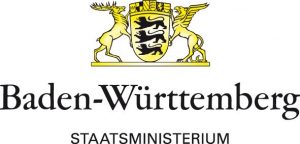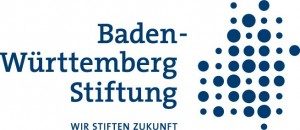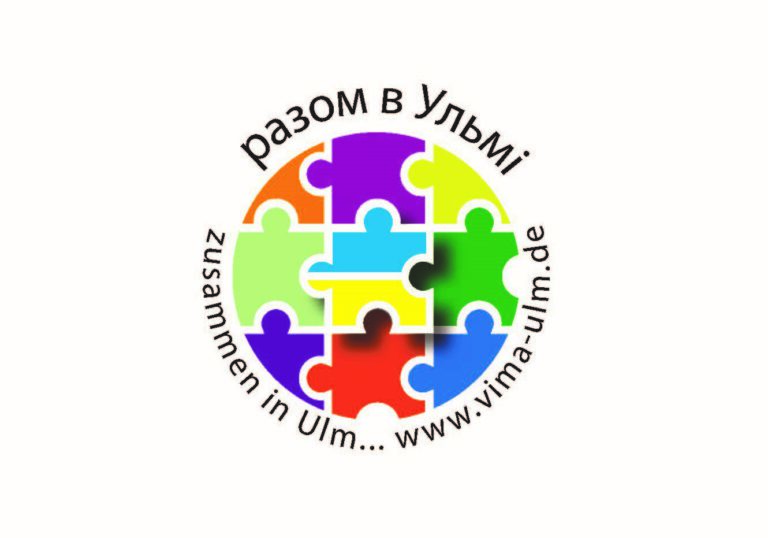
Projects
ViMA stands for Virtual. Participate. Active! ViMA Danube is an open, multifunctional online platform that is supposed to become the digital meeting point of citizens in the Danube region.
The goal is to give the citizens, in all their diversity, the opportunity to exchange ideas with others online about common interests.
The focus is on people, for whom digital tools are provided to get to know people with similar interests, to share knowledge with others, or to make competencies and skills available to others.
The platform is the basis for meetings and cooperation virtually, in the presence or mixed form in the following areas
- search-offer function (culture, sports, travel, …)
- Interest groups (sewing, history, cooking, …)
and gives information about partner organizations’ events.
To exchange information specifically about Ulm and the surrounding area, visit vima-ulm.de.
Project partners
Erasmus + Project with intellectual output
Within the framework of the project IN-CULT (Living Intangible Culture), an interactive educational game will be created in cooperation between adult education organizations and senior learners from (South-) Eastern Europe (Bulgaria, Romania, Serbia) and (South-) Western Europe (Germany, Spain, Italy). This game will help to test and deepen one’s knowledge about the European intangible cultural heritage in the participating countries.
Through learning groups in the individual partner countries, the knowledge about their cultural treasures, dialects, traditions, etc. will be collected and made available in the online learning game IN-CULT. The project participants will be assisted to acquire new skills in blended learning, furthermore, they will be strengthened in their competencies by the participative approach. The participating seniors support the partner organizations in the development of a questionnaire on the topic “My cultural treasure”, conduct interviews with people, who contribute to the preservation of a specific cultural treasure, and can acquire knowledge in webinars, that support them in their project work.
With the IN-CULT interactive educational game, we aim to support adult educators to enhance their competencies, teaching methods, and tools by offering them a multilingual and universal learning tool for their work and a set of innovative activating methods. For the application of IN-CULT in the classroom, there will also be a download area for working materials and methods.
The aim of IN-CULT is to raise awareness and disseminate knowledge about the importance and diversity of Europe’s cultural heritage – contributing to a common European future in peace and mutual respect.
More here:
https://in-cult-game.eu/
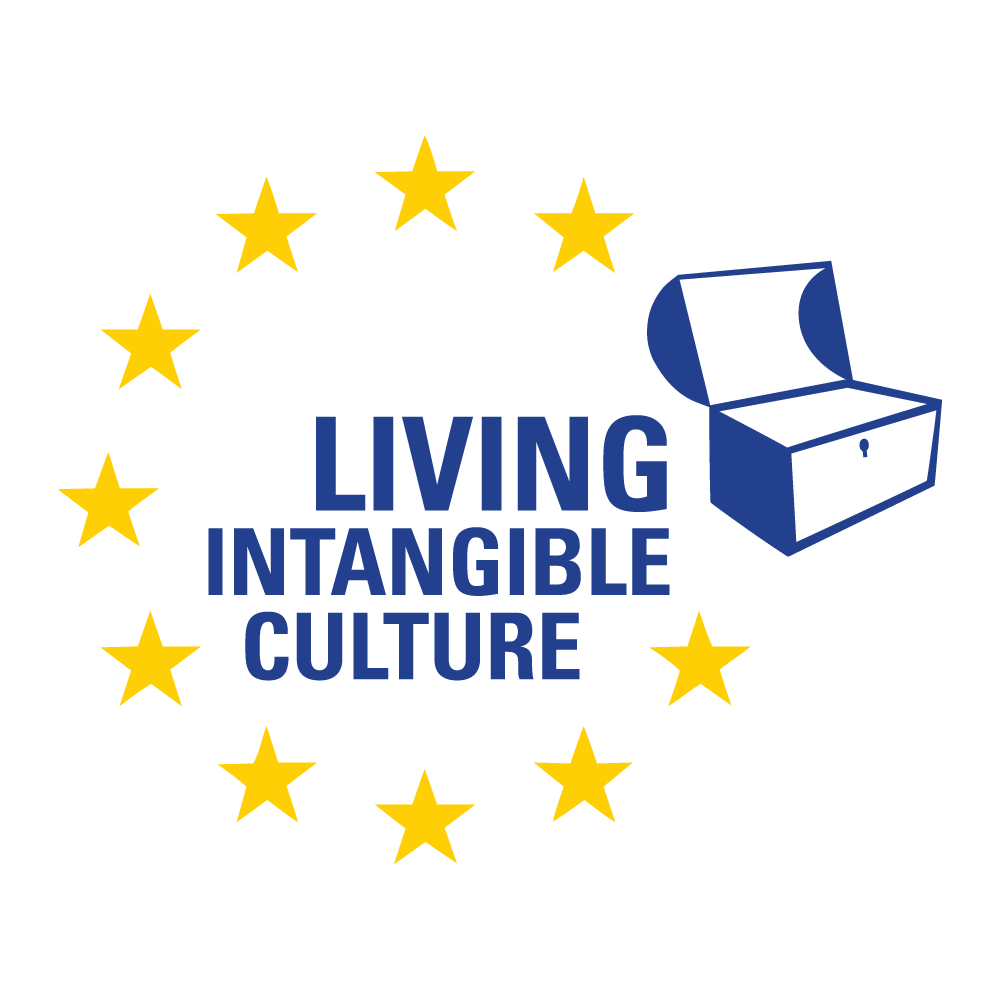
Project partners
Due to the current spread of the coronavirus, measures have been taken that seemed almost unthinkable some time ago, such as restrictions on social life and the closing of borders in Europe and worldwide. Older people in particular are threatened by health problems and most often experience social isolation.
The current situation is blocking many things, but not our sense of community and our commitment to peaceful, solitary, and common coexistence in Europe.
Within the framework of the pilot project DANECT, people of all ages, but especially seniors, from the Danube region come together to connect despite the social isolation in times of Corona crisis. With the help of online video meetings, they share their interests, emotions, but also competencies. To participate, you need a PC or laptop with a camera or microphone, alternatively a tablet or a smartphone and an internet connection.
Project partners
Duration: 2/2020- 12/2020
The project is a pilot project to develop creative methods in dialogue between people of different ages from Germany and Bulgaria. Its focus are central societal problems, such as demographic and technical changes and migration. The project is deliberately designed to be integrative and makes it clear that the active social participation of all is necessary in order to solve questions of the future.
The project received funding from the Baden-Württemberg Stiftung and Generationenstiftung of the Sparkasse Ulm.
Project partners
Web: www.codanec.eu
Duration: October 2019 – September 2021
Preserving cultural heritage in art and culture is not just a matter of museums. Everyday culture has many facets and is connected to the people who live it.
The project is about finding out what kind of regional or national cultural treasures are for individual groups or individuals worth to preserve and give to younger people for the future, how they maintain the selected cultural assets, how they pass them on, what changes they have undergone in the course of history, what transformations are conceivable.
The CODANEC project aims to make visible the knowledge and skills of older people from the Danube countries who contribute to the preservation of material and immaterial cultural assets. At the same time, the project is intended to build a bridge to the younger generation, who will contribute their own ideas on the subject of cultural assets.
Through intergenerational cooperation and the exchange of groups from different Danube countries, the interaction with traditions, customs and values is to be shaped in a new way.
The use of new media should contribute to visualisation and at the same time strengthen the media literacy of the participants. A photo competition and mini-projects will be announced in order to activate many people from the Danube countries, from all age groups, ethnic groups and social classes. Qualification training in photography and filming of short video clips will be provided. The results will be presented at public events. Moreover, there will be international partnership meetings and opportunities for exchange, e.g. within the framework of the Danube Festival Ulm/Neu-Ulm.
A intergenerational and transnational conference on the topic, a photo exhibition and the Danube-Bridge-Breakfast will be organised.
The CODANEC project is supported by the State Ministry of Baden-Württemberg.
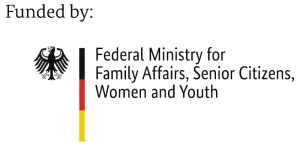
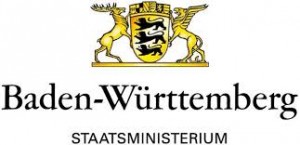
Project partners
Web: www.bbe-toolbox.eu
The project’s objective is the development of an online Method-Toolbox (https://bbe-toolbox.eu/), which can be used in European education programs and actions in the context of adult and especially older adult education. Central task will be the development of criteria for the analysis of projects and methods with the focus on good practices in the areas of fostering critical thinking, European consciousness and solidarity and the reduction of prejudices.
The Method-Toolbox should help to improve and extend the supply of high quality learning opportunities tailored to the needs of different target groups and individual learners.
Partner organizations from Germany, Italy, Slovenia, Croatia, Romania, Bulgaria are members of the educational networks Danube-Networkers, the international association DANET e.V., the FEDERUNI Network of Italian Universities of the Third Age and in Bulgaria the Platform Agora. All partners are experienced in national and international work with different target groups, especially older learners.
Collected will be methods of learning and transnational European cooperation, which will then be analyzed and adapted for work with the target groups of this project, especially older people, women, people with low education, and for learning settings (formal, non-formal, informal) in general adult education in Europe.
There will be four partner meetings and also cooperation via online tools. Taken into consideration will be various learning arrangements, target groups and differences in work conditions, culture, languages, as well as the educational and social framework of the respective countries and the applicability of the methods in the respective countries, focusing the cooperation of education providers from West, middle and Southeast Europe.
Please find further information on the project website: https://bbe-toolbox.eu/
The project is funded by the Erasmus+ Programme of the European Union.
Project partners
Web: http://bread-connects.tastes-of-danube.eu/
The successful Project „Tastes of Danube“ will be continued – start of the project „Tastes of Danube: Bread Connects“ in spring 2017
The very successful, intergenerational and intercultural Danube Project „Tastes of Danube: Bread. Wine. Herbs“ will be continued. The follow-up project „Tastes of Danube-Bread Connects“ is based on the findings and experiences in the project „Tastes of Danube-Bread.Wine.Herbs“.
At the heart of the project „Tastes of Danube: Bread Connects“ is the promotion of awareness raising for the common cultural roots in the Danube Region and in Europe and the strengthening of the Danube community by working on the subject of bread. Through various activities, citizens of all age groups, ethnic groups and social situations will be invited to experience bread as a common immaterial cultural heritage, which is reflected in many facets of local level. Through doing things together at local and transnational level, the aim is to demonstrate the possibilities offered by the cultural heritage of intergenerational and intercultural dialogue, social cohesion and economic development in the Danube Region and in Europe.
More information will follow soon.
The project is financed by:
Project partners
Web: www.odda.eu
Background: The pilot project Open Doors for Danube Countries for All (ODDA) builds on experiences from the previous work and projects of the network Danube Networkers. Mutual knowledge and understanding amongst people in the Danube countries and positive climate between European neighbours is one of the prerequisites to the successful implementation of the Danube Strategy and its European ideas. The project should help to reduce prejudices and fears, to introduce and establish new role behaviours and forms of civic engagement. Experiences from previous cross-national projects have shown that many people are reserved when it comes to programs that include international meetings or travel to the West or the East. This applies especially to people with low education, but also to people, who have large knowledge about their own culture. This reserve comes from the lack of knowledge of languages – the other national languages or English, the lack of experience with the cultures of the Danube neighbours and the resulting fear of getting into difficult situations.
The reason for this is the long division of the West and the East Europe and the different social systems. The consequences of this division are especially marked in the transdanubian sphere. Cross-national meetings foster motivation to find out more about the ‘world’ of the other, lead to questions and experience of alternatives for dealing with new situations and foster the feeling for common European democratic values.
The reason for this is the long East-West divide in Europe and the different social systems.
The project is financed by:
Project partners
Web: http://bread-wine-herbs.tastes-of-danube.eu/
As a follow-up project of “The Wanted Danube” the “Danube-Networkers” organization in Ulm starts a new project with their partners from all Danube countries in October 2015. “Tastes of Danube: Bread, Wine, Herbs” is the name of the project which welcomes civil society organizations, schools, single persons and groups in Germany and all other Danube countries as active participants. From now on, every interested group, institution or person from the Danube Region is invited to present their ideas for project activities and to actively take part.
Transnational activities will be designed and carried out circling around bread, wine, and herbs as traditional groceries and luxury foods which are equally common in all countries along the Danube river. The different activities will offer a chance to not only get knowledge about the use and meaning of these foods nowadays but to research about their social and cultural history throughout the countries. Memories and experiences from individual and professional life will fill the subject with life, along with teamed creative planning and baking, or, for example, discussing possibilities of food sharing.
The project is supported by Staatsministerium Baden-Württemberg, Baden-Württemberg Stiftung, Ulmer Bürger Stiftung, Sparkasse Ulm, Heidehof Stiftung and others
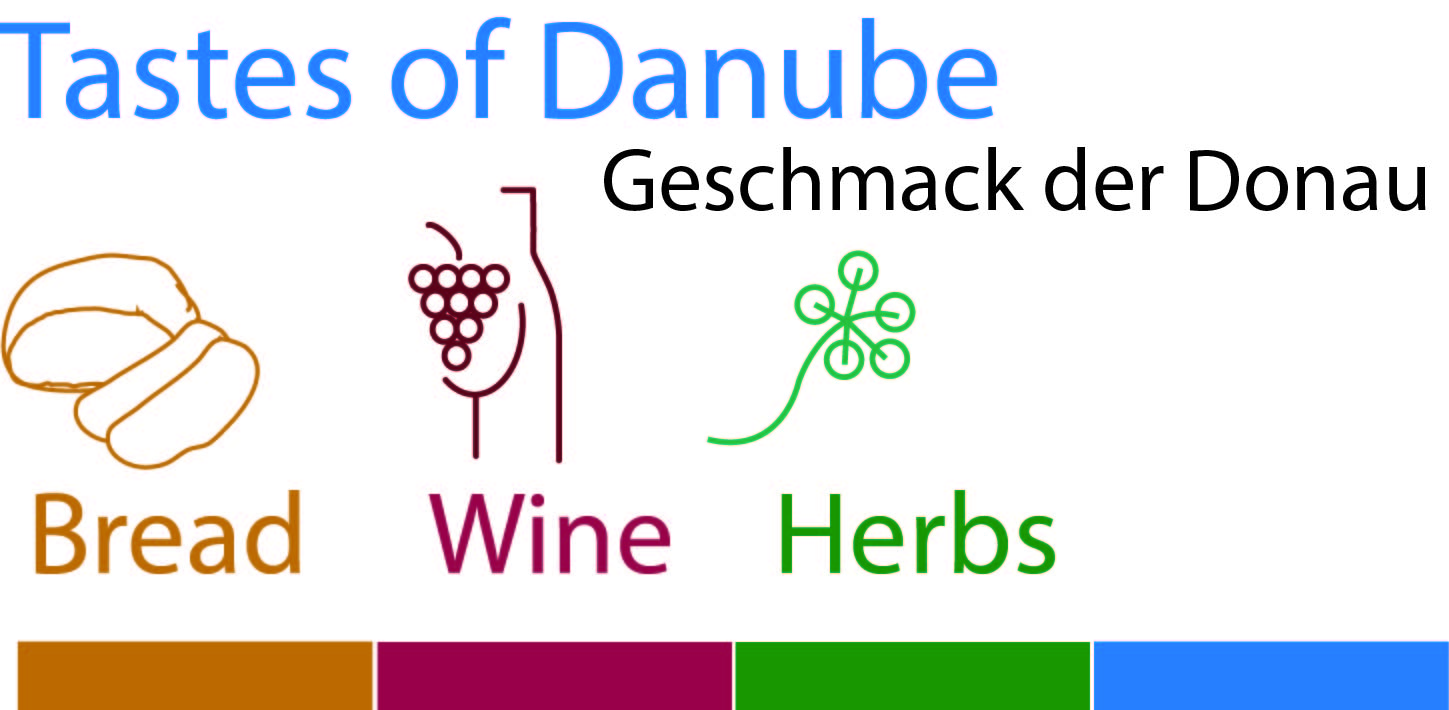
Project partners
The project “The wanted Danube” , mainly financed by the Baden-Württemberg Stiftung, was very successful not only in Germany but also in other Danube countries who participated in it. As the Danube-Networkers from Ulm did saw a great potential to continue with project activities and ensure the sustainability based on hilarious products – wool Water-Carpets and friendship strip, they started a new round of the part project, named “The Danube moves us”. Since July 2014 they did made a lot of action in Ulm region to promote the idea of the whole project and to offer the river carped pieces for collecting money to support social and pedagogical projects in the South-East Danube countries.
At the end of December 2014 the amount of donations has run up to almost 12.000 Euros. In July 2015 it had been 15.000 Euros. In October 2014 two educational institutions in small villages in Serbia and Croatia, which were damaged by the latest Danube flood catastrophe, were restored with the support from the “Wanted Danube” donations. One donation was given for one social project in Mariakemend, Hungary, and another donation for a pedagogical project to school Pildesti, Romania. Other project will be supported 2016.
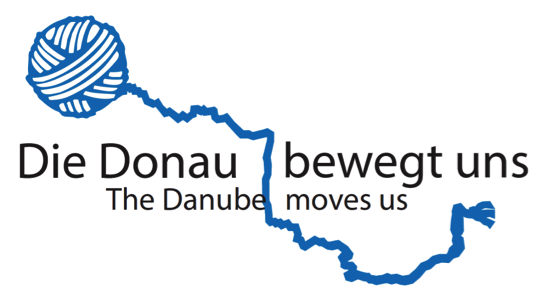
Project partners
The successful project “The Wanted Danube” demonstrated how mutual knowledge and first steps of mutual friendship between people from all over the Danube Area can develop from a hand-crocheted friendship ribbon. The project was initiated in November 2013 by the Ulm-based educational network “Danube-Networkers ” in cooperation with partner organizations from eight different countries along the Danube river. The presentation of the “common Danube-River carpet” on the Cathedral Place in Ulm during the International Danube Festival Ulm/Neu-Ulm on July 13, 2014 included representatives of all involved institutions along the Danube and was a big public success.
Designed as a parallel to the European Union’s Danube Area Strategy, which involves politics and economy, the goal of “The Wanted Danube” was to address the people on a personal level. They should view it as a positive challenge to get involved with each other and to improve their mutual knowledge, especially people from Western and South Eastern Europe as well as the people from different ethnicities in various Danube countries.
The output of the project is unique. More than 6.000 people from 8 Danube countries (Germany, Austria, Slovakia, Hungary, Croatia, Serbia, Romania and Bulgaria took an active part, seniors as well as pupils and students. 1.457,99 km of friendship ribbon were crocheted, 3.649 “river-piece carpets” were hand-crafted by the participants, along with many cultural and educational side events. A lot of engagement and interest in the Danube Area was demonstrated. The Danube Area became topic of many school classes. Wide-spread media coverage turned public interest to the project.
The project evaluation showed high outcomes on the individual level as well as on the group and institutional level. The “river carpets” and many hand crafted wool products, such as bags, blankets, cushions and more made from the friendship ribbon after the July 2014 presentation, are given away for donations which are used for social purposes and Danube-focused educational activities developed together with the partners from the Danube countries. The Ulm Danube-Networkers had been very engaged to promote the project “The wanted Danube” after the main event, which took place at the 13th of July 2014 during the International Danube Festival Ulm/Neu-Ulm. Five Danube-Networker-Days had been organized in Germany, Serbia and Bulgaria in 2015 with big participation from the citizens. In Ulm the Danube-Networkers did made a lot of action to get donations for the “river carpets”.
In October 2015 the project “The wanted Danube” got the Citizen Price 2015 from the European Parliament and the “Europa-Lilie für Bürgerschaftliches Engagement” (Europe lily for the citizens engagement) by the Europaunion Deutschland (European Union Germany).
The project was supported by various sponsors, mainly by Baden-Württemberg Stiftung, Germany.
Contact: Carmen Stadelhofer, chairwoman ILEU e.V. and DANET e.V.
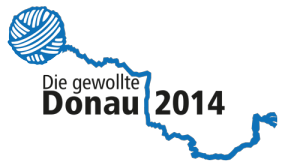
Project partners
Between March and April 2013, the Donaubüro Ulm/Neu-Ulm in cooperation with the Centre for General Scientific Continuing Education (ZAWiW) of Ulm University and other scientific education and civil society institutions from Serbia, Romania and Bulgaria implements the project “Changes of Perspectives – Intercultural Exchange between Generations und Cultures along the Danube”.
Three lectures prepared by scientists in 14-day intervals will be held live to an audience in the respective locations and transmitted over the Internet in an online-lecture series to the other project locations. After the lecture structured discussions will take place between the participants from all four countries. The lectures will be held in English and will be translated into the project partners` native languages.
20.3.2013 Tourism in the Danube Region: Economic factor or meetings of people? Danko Cosic, Tourismus Experte (Donaukompetenzzentrum Belgrad)
10.04.2013 What does demographic change mean for the Danube Region? (Ruse, Bulgaria)
24.04.2013 Old and young between tradition and modernity (Craiova, Rumänien)
Start of the lectures at 4 pm, Location in Ulm: Multimedia-Room N27, Ulm University
The aim of the project is to work out using the new media different perspectives between the Danube countries and the different generations to determine similarities and differences and to seek new solutions to social problems from different point of views. The online-lecture series contributes a better understanding between the people in the Danube region.
Between the online lectures local meetings will be held to the participant groups, which serve the preparation and follow up of the lectures. The short presentations in form of statements will be transmitted in advance to the other partner organizations, so the participants can prepare their questions and statements in English. The well structured discussions will be lead by selected moderators.
An Internet platform will present the lectures as video podcasts together with relevant materials. An Internet forum will provide the opportunity to elaborate on the subjects in intergenerational and cross-national discussions.
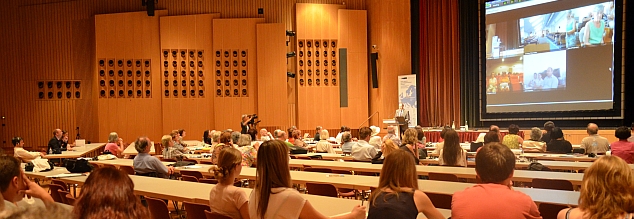
Project partners
On the 14th and 15th of March 2013, representatives from education organizations in Bulgaria, Croatia, Romania, Serbia, Slovakia, Slovenia and Germany had met at Ulm University for a kick-off meeting of a research project „Older Adults’ Lifelong Learning and ICT Use in the Danube Region”.
The research project aims at collecting data on Lifelong Learning (LLL) and use of Information and Communication Technologies (ICT) by older adults (especially in learning activities) in the Danube Region. It will take into account general conditions and existing structures in the partner countries. The results of the study are to enable the partners to draw up concrete recommendations for future projects and encourage networking. The partners involved in the study will have the opportunity of applying for a joint European project together, which will be based on the outcomes of the study.
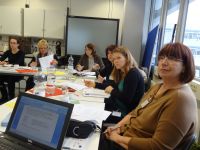
Project partners
The European Learningpartnership “Personal TownTours”, financed by the European Commission, Programme Liefelong Learning, should lead to the development of cultural tours that can be offered to national as well as international guests of the participating organisations and other interested parties in the project partners’ cities. Throughs cross-national exchanges, the projects’ learners gain know-how in the linguistic, cultural and historical backgrounds of other project members’ living environment. Activities: The members of the participating groups (seniors as well as younger adults) in the partners’ locations prepare under self-selected thematic focus 3-5 personalized 60-90 minute Personal TownTours and present them to members of partner groups from other countries as well as to other local older and younger people and bring their town closer to them.
Project partners
Between December 2011 and July 2012, the Donabüro Ulm/Neu-Ulm in cooperation with scientific education and civil society institutions from five countries (Germany, Austria, Hungary, Serbia, Romania) implements the “Media Project Old and Young” (Danube-Networkers Lectures, DALEC) with the thematic focus “Values and Paths along the Danube”. The project’s subject corresponds to this year’s topic of the city of Ulm and the motto of the Danube Festival 2012: “New spirit along the Danube”. The key tasks are assigned to the Centre for General Scientific Continuing Education of Ulm University (in short ZAWIW).
Project partners
The mobile exhibition „Danube-Networkers on Tour” is an event meant to accompany a learning partnership “Danube- Stories” which is funded by the European Commission for a time period between August 2011 and July 2013 and in which learning groups from seven Danube countries (Germany; Austria; Hungary; Croatia; Romania; Bulgaria and Serbia as silent partner) are participating.
The exhibition opened during the European symposium of the ZAWiW “Active Ageing and intergenerational learning” within the framework of the International Danube Festival in Ulm/ Neu-Ulm in July 2012 and moves in the time period September 2012 to June 2013 along the Danube till Ruse. The exhibition is supposed to reach larger audience through public events at different locations along the river Danube (Ulm, Wilhering/Linz, Vienna, Budapest, Belgrad, Vukovar, Timisoara, and Ruse).
The project is financed by the Baden-Württemberg Stiftung.
Project partners
The Grundtvig Learning Partnership Danube Stories (August 2011 – July 2013) focuses on the development and application of innovative approaches to oral history work with older people (55+) in the Danube Region. These approaches should encourage creative expression of thoughts and feelings in subject areas that have to do with the participants’ living environment, history and cultural identity. They should provide people of different nationalities, education backgrounds, gender, with opportunities as well as tools for documenting and communicating their memories and experiences and make these available to others.
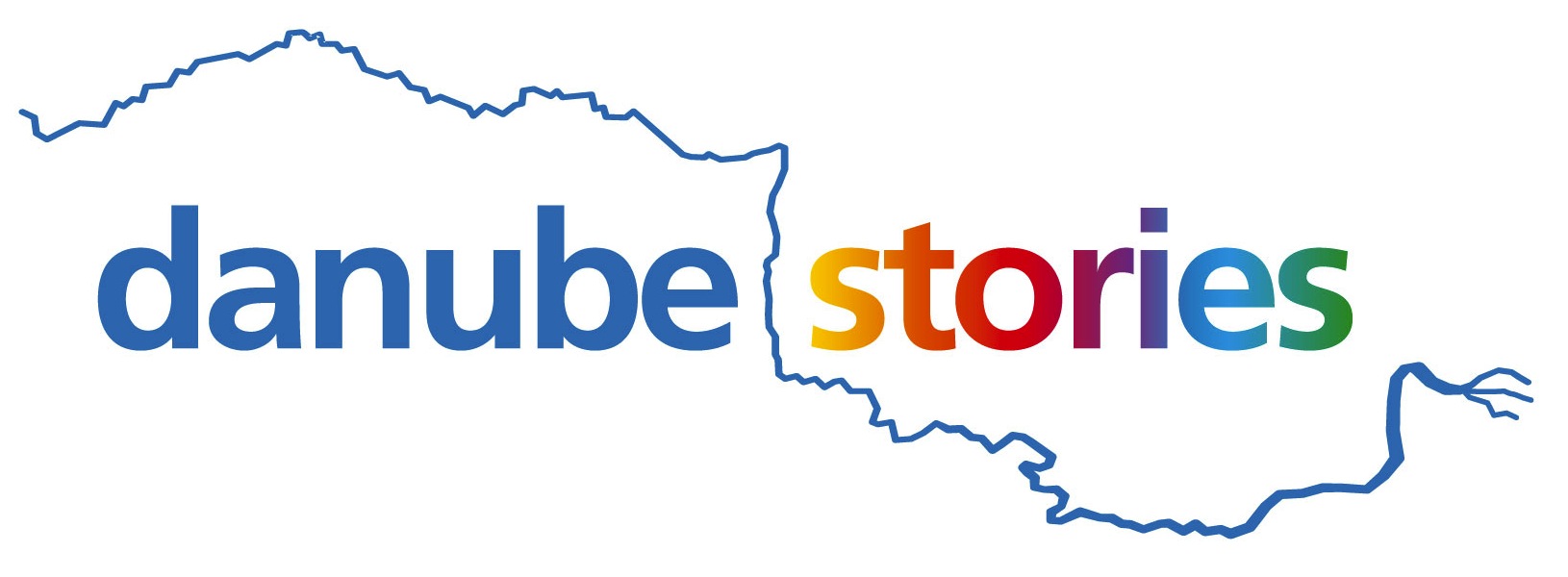
Project partners
Through new forms of activating lifelong learning the project aims at empowering older citizens for participation in the development of the Danube Region so that they understand the chances and the risks in the current developments, articulate their interests and define together the possibilities for action and for future perspectives of their Region.
Actions include education via lectures on selected subjects that concern the future of the Danube Region, subsequent discussion of these subjects in national face-to face and virtual citizens’ panels, and a transnational face-to-face citizen’s panel in Croatia in june 2011. The project will be closed in november by a seminar and conference meeting with European Parlamentariens in Strasbourg.

Project partners
In this project, following the analysis and discussion of good practices of academically-oriented continuing education for older adults, concepts for education programs in own national and institutional contexts and situations will be developed and tested by the partners at Universities and NGOs in Bulgaria, Romania and Serbia.
The education programs in the area of politics, social and cultural studies should foster understanding of political themes and social transformation in the context of the Danube Strategy of the European Commission, strengthen preparedness for political and social cooperation and participation and encourage older people to commit themselves to others and to society in their own region and in Europe.
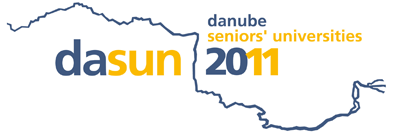
Project partners
In today’s society it is no longer unusual for women to become over 80 years old. These women look back on long periods of dedication to professional and domestic activities. What do we know about women aged 70+ that shape their lives with outstanding courage and social engagement? Which decisive turning-points and challenges like illness, loss of partners or children financial constraints did they have to master? Which professional, social and other activities did they take up and how do they perceive their aging? These questions will be asked by groups of women 50+, reflecting at the same time on their own life experiences.

Project partners
In the framework of the Grundtvig-Program “Senior Volunteering Project” (SVP) an first exchange along the Danube is realised through the co-operation of ZAWiW/ViLE e.V. and the University of the Third Age at the University Bratislava, in which four senior volunteers are spending three weeks in the partner country in order to participate in voluntary initiative.
Project partners
The goal of the learning partnership “Danube Networkers” was to create through joint activities of older adults from the neighbouring states along the river Danube an intercultural network of older adults and to make them into networkers in the way of the European idea. The learning partnership made civil participation and determination processes possible, it opened them to this target group. The partnership acted in a parallel way to the contacts created in the area of economy and culture (Danube offices) along the Danube and provided foundations for a larger European “Danube Networkers” project. In the sense of activating seniors’education, seniors’groups developed in the participating organisations worked together on jointly selected themes about the river Danube.
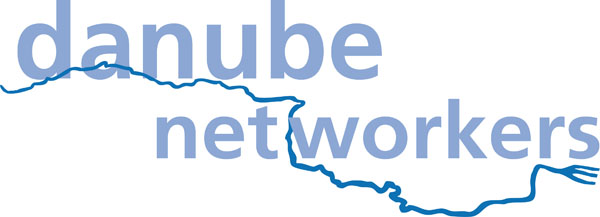
Project partners
From the 7th to the 12th of July 2008, in the context of the International Danube Festival Ulm, a seminar with the title “Home country – Danube country” took place in which seniors from the various countries along the Danube had met for the first time. The seminar had been organised by the “Zentrum für Allgemeine Wissenschaftliche Weiterbildung (ZAWiW) der Universität Ulm” and the seniors’ working group Europakontakte at ZAWiW in cooperation with the Association ViLE e.V. and other cooperation partners.
The goal of the seminar was to develop basis for a long-term thematic cooperation between seniors’ groups along the Danube in the way of a social network. Each delegation consisted of one person in charge in adult education and three seniors with facilitator functions.


